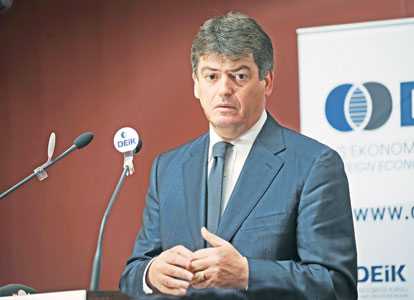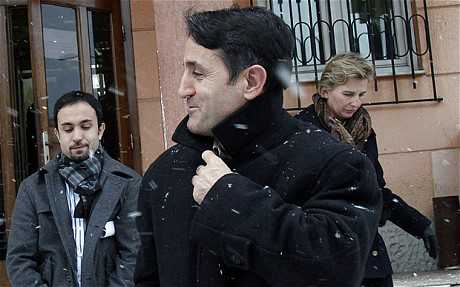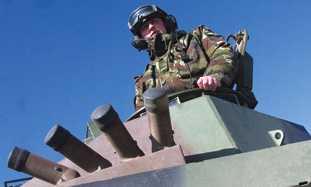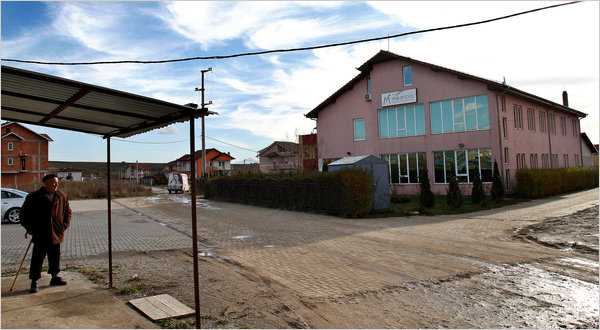The Turkish donor and the Israeli recipient were laid down on beds beside each other before the kidney was exchanged. Both men would later confirm that their eyes met for a brief few seconds before the anaesthetic took effect.
Yilman Altun, 23, was the desperate young Turk who said he was promised a rich reward for his organ by a broker in Istanbul. Alongside him lay Bezalel Shafran, a 74-year-old Israeli who had paid £76,400 for the black-market kidney he hoped would prolong his life.
According to an indictment released this week, the surgeon transferring the kidney between these strangers in the Medicus clinic in a deprived suburb near the Kosovan capital, Pristina, was Yusuf Ercin Sonmez, a 53-year-old medic.
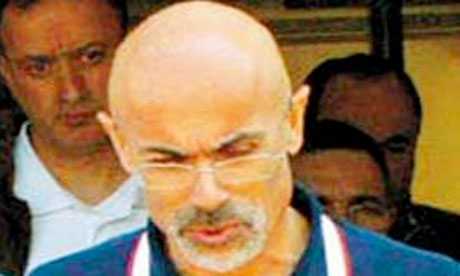
Sonmez, a Turkish surgeon, is now the subject of an international manhunt. Prosecutors allege he played a central role in the illegal organ transplant clinic, and this week an official inquiry linked the trade to Kosovo’s prime minister, Hashim Thaci.
Sonmez, a notorious figure known as “Doctor Vulture”, is wanted by Interpol for “crimes against life and health, people smuggling, trafficking and illegal immigration”. An investigation by the Guardian established Sonmez as having been a key player in the unscrupulous organ market for more than 10 years. He was seen this year in Azerbaijian, where, intelligence sources believe, he was doing kidney transplants at the university hospital in Baku.
Azerbaijan’s prosecutor-general’s office said last month that an investigation prompted by information from Ukranian police found “citizens of various countries” had been brought into the country for illegal kidney transplants. Four Ukrainian doctors have been arrested in connection with the alleged racket. Azerbaijani press reported that Sonmez was “involved” in the ring, which also did operations in Ecuador. At a press conference in Baku this year, which took place before the warrant for his arrest was made public, Sonmez reportedly denied involvement in organ trafficking.
According to a charge read out on Tuesday by the EU prosecutor Jonathan Ratel, the alleged role of Sonmez in the Medicus clinic became clear when police raided the property in November 2008. The inquiry had been opened just hours earlier, after Altun, the Turk, fainted at Pristina airport. When officials found an fresh wound on his abdomen, he told them his kidney had been stolen.
Four anaesthetists and a former permanent secretary in the health ministry, who prosecutors allege abused his office to give Medicus a false licence, have pleaded not guilty. So too has Lutfi Dervishi, Kosovo’s leading urologist, who is accused of setting up the clinic with his son, Arban. Ratel told the court that victims were duped “with the false promise of payments” for their kidneys.
When the Guardian visited Medicus this week, surgical gowns for the Russians, Moldovans, Kazakhs and Turks intending to lose their organs could be seen through the windows. So too could cardboard boxes containing medical supplies printed with the name Sonmez.
Dervishi, who still works at Pristina university hospital, was using Medicus business cards and phone numbers in another clinic nearby. He refused to speak to the Guardian this week.
But it is Sonmez who prosecutors believe has been the central figure in the trafficking. The Turk has been repeatedly arrested for organ transplants in his native country, where colleagues describe him as an accomplished but rebellious surgeon. In 1998, Turkish TV, whose reporters posed as donors, found seven patients, mostly from Israel. Sonmez was later banned from working in Turkey’s public health sector.
Since then he has been linked to clinics operating on donors and recipients from across the world. He has admitted to doing thousands of transplants, but says that his donors sign disclaimer forms declaring they are giving their organs for humanitarian purposes.
Police found such forms at Medicus, along with a “vast quantity” of medical equipment and records of all the transplants, according to Ratel, who said that up to 30 victims lost their kidneys in the clinic in just eight months in 2008. Patients from Canada, Germany, Poland and Israel had received organ transplants at the clinic. But despite promises of payment of up to €20,000, the donors had left empty-handed, he said.
A Council of Europe report into organ trafficking in Kosovo linked the Medicus case to a wider criminal network in the Kosovo Liberation Army (KLA), which began trading in organs in 1999. A faction within the rebel guerilla army loyal to Thaci has been accused of overseeing a racket involving Serb captives. A “handful” were said, in the report, to have been shot in the head, then had their kidneys extracted. It is believed the kidneys were flown to Istanbul in ischemia bags. Thaci has strongly denied the claims.
A Washington-based intelligence source said the kidneys were sold to Sonmez. It was then that the Turkish doctor was said to have struck up a relationship with Kosovan Albanians, who, investigators believe, are implicated in the Medicus clinic case which unfolded in the confirmation hearing case this week. A judge in Pristina district court will decide whether there is sufficient evidence to proceed to trial.
“In many respects the two are similar operations. In both cases, you’ve got illegal outfits linking senior players among the Kosovar Albanians trading in the organs of innocent victims, playing into an international racket to profit from the surgeries of Sonmez,” a source said.
via The doctor at the heart of Kosovo’s organ scandal | World news | The Guardian.

